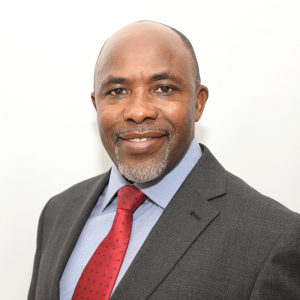24 October marks the anniversary of the entry into force in 1945 of the UN Charter which established the United Nations.
This year’s commemoration comes at a time of great distress with new crises across the world that add to already familiar ones. The new crises include the war in Ukraine with its ramifications on people, economies, food, energy and finance which are hitting developing economies the hardest. The latest wave of horrific violence in the Middle East triggered by the attacks on Israel by Hamas and the retaliatory attacks by Israel in the Occupied Palestinian Territory, particularly in Gaza, is taking an unbearable toll on civilians and pushing back on hopes of a resolution to the long-running conflict. Quite unacceptably, all the crises take their greatest toll on women and girls, and on marginalized groups that already suffer discrimination.
Indeed, all around us, things seem to be getting worse with increased violence, mistrust, displacement, dire humanitarian and human rights situations, and a planet in distress.
In these circumstances, a salutation of “Happy UN Day” may sound extravagant and uncalled for. On the contrary, however, the global solidarity and multilateralism that the UN stands for are crucial now more than ever.
The purposes and principles of the UN Charter that have guided us for the past 78 years are ever more relevant in our world today where so many people need hope for a better tomorrow.
Over the years here in the Kingdom of Eswatini, the country has enjoyed close collaboration with the United Nations and development partners to address national priorities, ranging from poverty reduction, food security, health, education, gender equality, social protection, human rights, environmental sustainability, climate change and natural disasters such as droughts and floods.
In September, world leaders, including His Majesty King Mswati III, adopted the Declaration of the High-level Political Forum on Sustainable Development, a shared commitment to accelerate the implementation of the 2030 Agenda for Sustainable Development.
At this global forum in New York, Eswatini was one of only eight UN Member States in Africa and one of 32 countries in the world to submit a recovery and acceleration plan to achieve the SDGs by 2030. The Eswatini SDG Recovery and Acceleration Plan has been costed at an estimated E30 billion (about US$ 1.6 billion) covering diverse areas, including digital transformation, renewable energy, agriculture, industrial expansion, transformation of the education system, social protection, health, environment and water, sanitation and hygiene.
I congratulate the Kingdom of Eswatini for its ambitious commitment and reiterate the UN’s commitment to continue supporting these transformative actions aimed at improving the lives of all EmaSwati, including a clear implementation plan and indicators to measure progress.
Therefore, as we mark UN Day today, we must keep the hope alive of a world working in concert to uphold the values and aims of the UN Charter for the benefit of all the peoples of the world.
We must also take time to appreciate all the men and women who work for the United Nations, some in very difficult humanitarian and conflict situations. So, I say ‘thank you’ to all our staff in Eswatini. I say ‘thank you’ to all development partners who have continued to invest their resources in Eswatini. I say ‘thank you’ to His Majesty’s Government and the people for our partnership.
I leave you with the words from our Secretary General Antonio Guterres’ statement for the Day:
“The United Nations is guided by timeless values and principles, but it must never be frozen in time.
That is why we must always keep strengthening ways of working and applying a 21st century lens to all we do.
On this United Nations Day, let us commit with hope and determination to build the better world of our aspirations.
Let us commit to a future that lives up to the name of our indispensable organization.
We are a divided world. We can and must be United Nations.”
We are the United Nations!


















